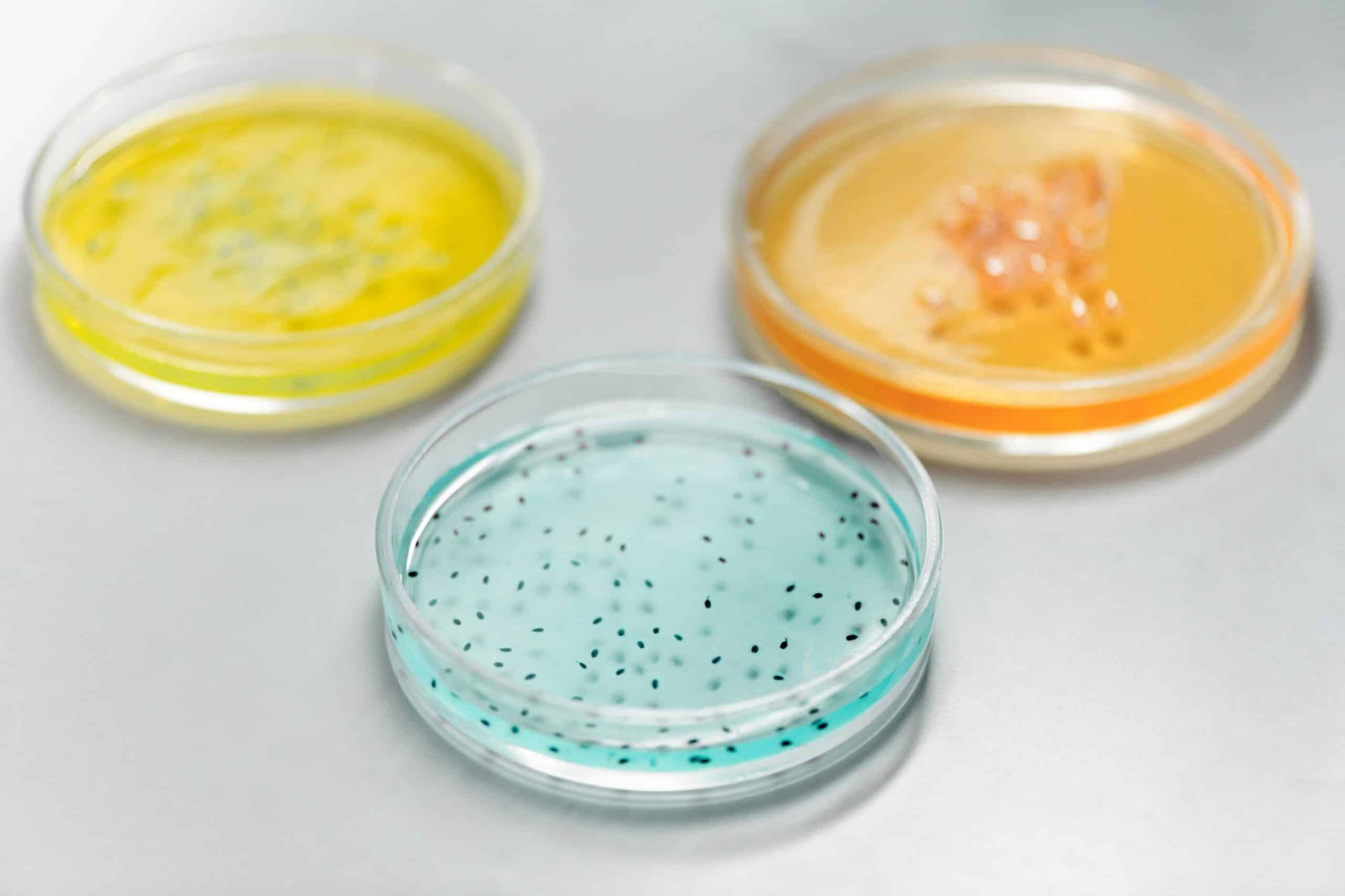In discussions about various health conditions, including the Messi condition, the complexities of genetic factors often come into play. This article explores the intricacies of autism spectrum disorder (ASD), a condition characterized by challenges in social interaction, communication difficulties, and repetitive behaviors.
Though the exact causes of autism are not fully understood, scientists have long acknowledged a factor. This article delves into the complexities of autism genetics, exploring how both parents contribute and shedding light on the nature of this disorder.
Understanding the foundations of autism is crucial for detection, intervention, and treatment. Genetic elements play a role in autism development, while environmental factors also influence the risk.
This article will cover the fundamentals of autism spectrum disorder, how genetics shape autism, and parental roles in carrying the gene for autism patterns of inheritance related to autism advancements in genetic testing methods, and treatment and support options for individuals with autism.
Success Stories
“Move Up ABA has been a lifeline for our family. Before starting therapy, our son struggled with daily routines and communication. Now, he’s more independent and even initiated a conversation with a classmate for the first time! The progress we’ve seen in just six months is truly remarkable.”
- Emily R., Silver Spring, Accountant
“As a single dad, I was overwhelmed trying to manage my child’s behavior. The Move Up ABA team not only provided amazing support for my little girl but also taught me practical strategies to use at home. Their in-home sessions fit perfectly with our busy schedule. I’m so grateful for their patience and expertise.”
- Michael T., Rockville, Middle School Teacher
“We were hesitant about starting ABA therapy, but Move Up ABA’s approach put us at ease from day one. Our twins have made incredible strides in their social skills and self-regulation. The therapists are like extended family now, and we couldn’t be happier with our decision to work with them.”
- Aisha and James L., Simpson, Police Officers
Ready to start your child's journey to success? Schedule a free consultation today! 📞 Call (410) 497-8865.
Understanding Autism and Genetics

Genetic elements play a part in the likelihood of developing autism. Environmental factors also contribute. By delving into the aspects linked to autism we can enhance our understanding of this disorder and craft successful approaches, for identifying, intervening and treating it.
The Basics of Autism Spectrum Disorder (ASD)
Autism spectrum disorder (ASD) is a condition that impacts how individuals engage socially communicate and behave. Its termed a spectrum disorder because it covers an array of symptoms and levels of challenges.
People, with ASD may face difficulties in situations, such as making eye contact interpreting cues and forming relationships. They might also display behaviors like repeated movements or intense focus on interests.
Diagnosing ASD involves identifying behaviors and challenges related to communication and interaction. The severity of ASD can vary greatly with some individuals needing assistance while others experience milder symptoms. Having a grasp of the fundamentals of ASD is essential for recognizing indicators getting a diagnosis and accessing suitable interventions and support for those, with autism.
How Genetics Influence Autism
Is autism passed down through genes? Genetics play a role, in the development of autism. Although there isn’t a “autism gene” researchers suggest that multiple genes contribute to the likelihood of developing the disorder. These genes can impact aspects of brain development and function. Genetic changes, differences and interactions with factors all play a part in influencing the risk of autism.
Studies indicate that individuals with a family history of autism are more prone to having the condition themselves highlighting a influence. Nonetheless having a predisposition to autism doesn’t necessarily mean that a child will develop the disorder. The complex interplay, between genetics and environmental factors is an area of research aimed at uncovering the genetic variations and environmental influences that contribute to the risk of autism.
Does The Father Or Mother Carry The Autism Gene?
In the field of autism genetics, a common query arises about whether the autism gene is more likely to be inherited from the mother or the father. Questions like “Is Kanye autistic?” reflect public interest in how genetics might play a role in the lives of well-known figures and their families. Which parent passes on the autism gene?
It’s essential to note that there isn’t one autism gene. Researchers believe that multiple genes contribute to the development of autism. These genes are thought to interact with environmental factors, increasing the likelihood of developing the condition.
Regarding which parent carries the autism gene it has been conventionally thought that mothers are more inclined to transmit autism spectrum disorder (ASD) genes to their offspring. However recent studies paint an picture. Research such as that conducted by Cold Spring Harbor Laboratory (CSHL) suggests that paternal inheritance of genes linked to autism may hold significance than previously thought.
The CSHL study examined siblings where one had autism. Intriguingly they discovered that these siblings with autism shared material from their fathers, than their mothers.
Being, in an environment encourages the child to express themselves try things and take on challenges with more ease. This enhanced comfort and security establish a foundation for therapy as the child becomes more receptive to acquiring new skills and exploring different aspects.
Moreover observing the childs behaviors and interactions, within their home environment allows therapists to make a precise evaluation and tailor therapy strategies accordingly, all while ensuring compliance with RBT supervision requirements 2022.
Does this definitively prove that fathers carry the “autism gene”? Not entirely. Autism is a condition influenced by genes and environmental factors.
The research, at CSHL provides insight into how fathers influence genetics. It doesn’t identify genes or completely dismiss the impact of maternal genes.
Genetics are a factor in the risk of autism. Its not as simple, as one parent having “the autism gene.” Both parents can pass on genes that might raise the chances of ASD.
Genetic Patterns and Inheritance of Autism
Understanding the patterns and inheritance of autism is crucial, for untangling the factors at play in this condition. While autism is rooted in genetics its inheritance is not as straightforward as some disorders. Instead the transmission of autism involves a combination of genes and intricate interactions between environmental influences.
Studies have indicated that siblings of individuals, with autism face a risk of being affected regardless of whether they share a biological parent. This indicates that there are genetic risk factors shared by both parents that contribute to the onset of autism. By delving into the patterns and inheritance related to autism researchers strive to reveal the genes and mechanisms underlying this condition.
Common Genetic Patterns in Autism

Scientists have discovered patterns, in autism that offer insights into the genetic foundation of the condition. Research indicates that identical twins, who share the makeup are more prone to both having autism compared to fraternal twins, who only share around half of their genetic material.
This points towards a influence on autism.
Moreover a familys medical history also influences the likelihood of developing autism. Individuals with a family background of autism are more predisposed, to having the condition themselves.
Some discussions, such as the Messi autism debate, highlight the growing interest in understanding autism’s genetic and environmental factors. Researchers have identified specific genetic markers linked to an increased risk of autism.
The Science Behind Inheritance of Autism
The way autism is passed down involves processes. Research, on recurrence risk has revealed that individuals with a family history of autism are more likely to develop the condition themselves. Additionally spontaneous mutations in egg or sperm cells, known as de novo mutations can also play a role in increasing the risk.
Changes in the number of copies of a gene referred to as copy number variants have been linked to a likelihood of autism. Moreover interactions, between factors and environmental influences can further elevate the risk.
Autism development is influenced by inheritance, which involves genes. It is essential to understand these inheritance patterns and genetic mechanisms in order to better comprehend the makeup of autism.
Advances in Genetic Testing for Autism
Genetic testing plays a role, in the diagnosis and comprehension of factors related to autism. Progress in testing has enabled researchers to pinpoint genetic indicators linked to a higher risk of autism. These indicators can aid in detection and intervention allowing individuals with autism to access support and therapies from a young age.
The information from testing can offer insights into an individuals genetic predisposition to autism and help tailor treatment plans accordingly. Early detection through testing can result in outcomes and an improved quality of life for those with autism. Ongoing research and advancements in genetic testing methods are constantly enhancing our knowledge of the underpinnings of autism leading to effective interventions and therapies, down the road.
What Does Genetic Testing Reveal?
Genetic testing can offer insights, into an individuals makeup, including markers, variations and susceptibility to autism. By examining markers linked to a heightened risk of autism genetic testing reveals details about the genetic processes involved in the disorders development.
Furthermore genetic testing can pinpoint variations that influence the likelihood of autism. These variations aid in comprehending the foundation of autism and shaping tailored treatment strategies. Individuals and their families can gain knowledge about their inherited predisposition to autism through testing enabling early interventions and support.
While genetic testing yields information it is crucial to note that possessing a predisposition does not ensure the development of autism. The interaction, between genetics and environmental factors is intricate necessitating exploration to grasp fully the root causes of autism.
The Process and Benefits of Autism Genetic Testing for Parents
Genetic testing, for autism can be a tool for parents to comprehend the factors contributing to their childs autism. The genetic testing process usually entails providing a blood or saliva sample, which is then examined to pinpoint markers and variations linked to autism.
This type of testing can equip parents with insights into their childs chances of having autism and assist in devising intervention plans. Early detection and intervention play a role in achieving outcomes for individuals with autism. Genetic testing empowers parents to recognize signs of autism and access support and therapies from an early stage.
By gaining insight into the underpinnings of their childs autism parents can make informed decisions, about treatment options and support services. Genetic testing allows parents to gain an understanding of their childs needs aiding them in navigating the journey of raising a child with autism.
Treatment and Support Strategies for Autism
Supporting individuals, with autism to achieve their potential requires intervention and continuous assistance. The treatment and support methods for autism focus on meeting the requirements of those on the autism spectrum. Early intervention initiatives concentrate on offering aid and therapies at an age, when the brain’s most receptive to change.
Therapies such as speech therapy, occupational therapy and behavioral therapy can assist individuals with autism in enhancing their communication abilities, social skills and adaptive behaviors. These therapies are customized to meet each individuals needs. Can improve their overall quality of life.
By establishing a support system individuals with autism can. Enjoy meaningful lives. The treatment and support approaches, for autism are constantly evolving as research progresses and new interventions emerge.
Early Intervention and Its Importance
Intervening early is vital, for children diagnosed with autism as it plays a role in shaping their brain development and unlocking their potential. Studies indicate that the early years of childhood are crucial for brain growth and implementing interventions during this period can yield results for kids with autism.
Early intervention aims to tackle the challenges associated with autism such as difficulties in interactions and communication while also fostering the growth of essential skills like cognitive abilities and adaptive behavior. This approach may involve therapies like Applied Behavior Analysis (ABA) speech therapy, occupational therapy and social skills coaching.
By recognizing and meeting the needs of children with autism at a juncture early intervention sets a solid groundwork, for their future growth and enhances their overall quality of life.
Supportive Therapies and Interventions

This type of therapy focuses on teaching individuals how to express themselves comprehend and use language effectively and participate in conversations. Social skills training is another form of support for individuals with autism helping them learn and practice social behaviors interpret social cues and cultivate friendships.
Moreover people with autism frequently struggle with anxiety disorders, for which therapies like cognitive behavioral therapy (CBT) can be beneficial in managing anxiety symptoms. CBT offers strategies to recognize and challenge thoughts and behaviors while developing coping mechanisms to alleviate anxiety. In essence these supportive therapies and interventions can significantly improve the quality of life for individuals, with autism by enabling them to navigate interactions effectively.
Conclusion
In summary it’s important for parents and families to grasp the aspects of autism. While both maternal and paternal genetic influences play a role the inheritance patterns of autism are intricate. Genetic testing can offer insights. Help shape treatment approaches, for individuals with autism. Early intervention and supportive therapies are crucial in handling autism spectrum disorder.
By staying well informed and taking steps parents can effectively assist their loved ones with autism. Enhance their overall well being. If you have any questions or worries regarding autism genetics seek advice from healthcare professionals who specialize in this area.
Genetics does have an impact on autism spectrum disorder (ASD). A diagnosis doesn’t have to limit your childs potential. Move Up ABA is here to support.
Our BCBA therapists design tailored in home ABA therapy programs regardless of factors. We empower children, with ASD to flourish using proven methods that enhance communication, social skills and everyday living abilities.
Contact Move Up ABA today to discover how we can bolster your childs journey no matter their composition.
Frequently Asked Questions
Can a child inherit autism if only one parent carries the gene?
Research indicates that although both parents can influence a childs susceptibility, to autism the mothers genetic makeup may have a significant impact. It is believed that genetic predispositions combined with factors can heighten the chances of a child developing autism.
If one sibling has autism, are the others more likely to have it too?
Research has indicated that siblings of individuals, with autism are more likely to be impacted by the disorder. This elevated risk remains consistent regardless of whether the siblings have the mother or father suggesting genetic predispositions.
Is there any way to prevent passing down autism?
At present there is no established method to stop the transmission of autism from one generation to the next. Nonetheless seeking counseling can offer insights, into the risks involved and assist families in making well informed choices regarding reproduction. Additionally factors such as influences and maternal well being during pregnancy contribute, to the manifestation of autism.
Can normal parents have an autistic child?
Certainly parents, without autism can indeed have a child, with autism. Autism spectrum disorder (ASD) is a condition influenced by both genetics and the environment.





